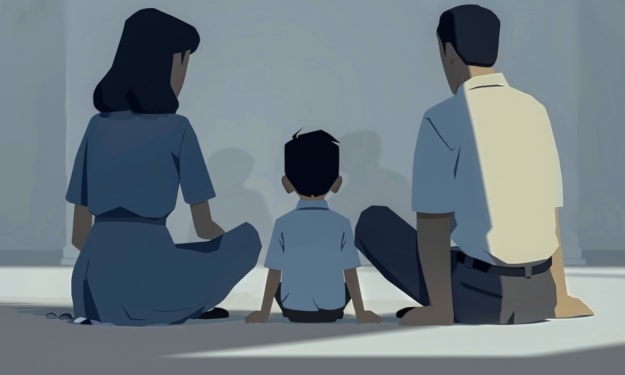The Power of "You're Right"
How One Apology Saved a Marriage

Gemini was just updated. See update
close
Conversation with Gemini
Write a story of happy husband who successfully managed conflicts with his wife. Story should me more than 700 words
volume_up
David hummed along to the radio, the smell of freshly brewed coffee filling the air. He set a steaming mug on the counter beside Sarah, who was already engrossed in her morning news feed. Married for ten years, their mornings were a well-worn path, comfortable and familiar.
But today, the air crackled with unspoken tension. Sarah barely glanced at him, and her usual smile was absent. Memories of a late-night work call and a forgotten grocery run flickered in David's mind. He braced himself – a disagreement was brewing.
Sure enough, Sarah slammed her phone down, her voice tight. "Did you even look at the fridge last night?"
David winced. "Honestly, I meant to, but –"
"But work is always more important, right?" she cut in. "It wouldn't have killed you to grab some milk."
David felt his hackles rise. He wanted to defend himself, explain the unexpected deadline, but the familiar cycle of defensiveness and resentment that always followed held him back. Instead, he took a deep breath.
"You're right," he said, softer than usual. "I should have checked the fridge. It's my fault."
Sarah blinked, surprised by his lack of rebuttal. A flicker of hurt softened her gaze.
"It's not just the milk, David," she sighed. "It's everything. I feel like I'm constantly picking up the slack. You're always so focused on work, and I..."
David finally met her eyes, his own welling with a sudden awareness. He saw the exhaustion etched around her eyes, the frustration he had been too self-absorbed to notice. Shame washed over him.
"You're right again," he repeated, placing a gentle hand over hers. "You do so much. More than I ever acknowledge."
Sarah didn't pull away, but a tear escaped, tracing a path down her cheek. David's heart ached. He pulled out a chair and sat down beside her.
"Let's talk," he suggested. "Really talk, no interruptions."
They spent the next hour dissecting the issue. David confessed his work-life balance had become skewed, and Sarah admitted feeling alone in managing the household. They spoke openly about their frustrations, fears, and desires. It wasn't easy – vulnerability was scary. Yet, with each honest word, a bridge began to rebuild.
When they finally paused, a fragile understanding had formed. David made a concrete plan to delegate tasks at work, allowing for more time at home. He promised to be more present, to actively listen and share the responsibilities. Sarah, touched by his genuine effort, offered to be his "work-life balance coach," a lighthearted title that eased the tension.
The change wasn't immediate. There were still occasional slip-ups, forgotten appointments, and moments of frustration. But something had shifted. They had learned a crucial lesson: communication and empathy were the cornerstones of their happiness.
One Friday evening, a few weeks later, David surprised Sarah with a picnic basket. The sun was setting, painting the sky in hues of orange and pink. They sat beneath their favorite oak tree, sharing a simple dinner and stolen kisses.
"Remember that morning?" Sarah asked, a playful smile on her lips.
David chuckled. "The milk incident? How could I forget? It was a wake-up call."
"A painful one," she teased, leaning into him.
"The best kind," he said, wrapping his arm around her. "We almost lost sight of what mattered."
They fell silent, watching the fireflies dance in the twilight. Sarah reached for his hand, her fingers intertwining with his.
"Thank you," she whispered. "For listening, for understanding."
David squeezed her hand back, his heart full. "Thank you," he replied, "For being patient, and for showing me what I needed to see."
For David and Sarah, the conflict wasn't an ending, but a turning point. The fight over milk became a catalyst for a deeper understanding, a reminder that even the happiest marriages need constant care and communication. They learned that compromise and empathy weren't weaknesses, but the building blocks of a stronger, more loving relationship. As they sat beneath the setting sun, hand in hand, they knew the future held not just milk-filled fridges, but a love that could weather any storm.
About the Creator
Muhammad Safdar
I'm a writer with a passion for both storytelling and connection. I believe strong relationships are the cornerstone of a fulfilling life, and I'm here to help you build one that thrives.
Enjoyed the story? Support the Creator.
Subscribe for free to receive all their stories in your feed. You could also pledge your support or give them a one-off tip, letting them know you appreciate their work.






Comments (4)
Muhammad Safdar is not accepting comments at the moment
Want to show your support? Send them a one-off tip.